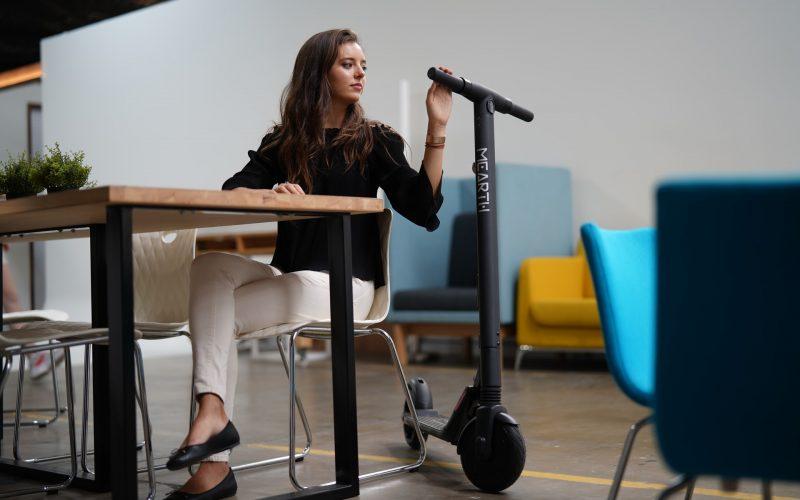
As air pollution in cities continues to rise, cities and commuters are finding ways to travel greener. One popular solution that is becoming the norm in some cities is the use of electric scooters, electric bikes, and other personal micro-mobility devices. However, electric scooters have gained more popularity due to their portability, efficiency, affordability, and sustainability.
However, will eco-friendly scooters really help save the environment? The micro-mobility device has been met with criticism with articles saying that the overall carbon emissions of e-scooters are still high when you look at the whole electric scooter life cycle. While there is truth to these articles, many studies have proven that electric scooters offer a positive impact on the environment, especially personal e-scooters. With this, here are some of the environmental benefits of riding electric scooters.
How electric scooters can save the environment
Electric scooters help reduce air pollution in cities
High carbon emissions from road transportation is a big challenge for highly dense cities across the globe. In the US and the UK alone, 28% of carbon emissions come from road transportation. In fact, the transportation sector is one of the biggest contributors to harmful emissions globally. Although electric cars are already available in the market, most people can’t afford their expensive prices. So, the next best thing to riding eco-friendly personal transportation is electric scooters.
According to a study by Lime, the city of Paris was able to save over 330 tons of carbon emissions after implementing shared e-scooters schemes for a year. Since electric scooters don’t need fuel to function, it also doesn’t emit any harmful gases while in use. If more people can switch from using personal cars to e-scooters for short-distance trips, then cities can significantly reduce air pollution.
Some e-scooters are also made from sustainable material
One problem that some people have with electric scooters is their life span. Unfortunately, private electric scooters have an average life span of two to three years, while shared e-scooters last for a few months. Once it stops functioning, it’s time for them to go to the landfills, which adds to increasing land waste.
However, many electric scooters are already made from recyclable materials. This includes aluminium alloy, which is known to be recyclable and sustainable. This type of metal can also be melted down repeatedly for recycling since it doesn’t lose its quality. Moreover, recycling a ton of aluminium saves 9 tons of carbon emissions.
Aside from this, some electric scooter components are made from recyclable metals, magnets, and copper wires, which adds to their recyclability. Plus, electric scooters are very low maintenance, so parts don’t need to be replaced often. In turn, this reduces the waste that e-scoter produce in their life cycle. As more manufacturers use more sustainable materials and processes, consumers can expect less environmental harm and waste during the e-scooter’s production process.
It helps save on energy
Although electric scooters don’t use fuel for energy, it does use electric energy. However, electric scooter owners should worry about their electricity bills as e-scooters don’t consume much energy. A long-range electric scooter with a powerful battery also doesn’t make a huge difference to the electricity bill.
Aside from this, some e-scooters use eco-friendly parts and technology to save on energy. For example, some electric scooters use LED lights for the front and rear lights and even the display screen to make the e-scooter more energy-efficient. Most e-scooters also come with Electronic Braking System technology which recycles energy back into the battery when braking. This way, riders can ride a longer range and charge less often. Compared to cars, e-scooters are the more practical choice.
E-scooters also help lessen noise pollution
Noise pollution is the kind of pollution that’s not noticeable but its effects can be felt. It often occurs in populated cities where there is excessive noise from vehicles, construction equipment, nightlife, and people. People exposed to long-term noise pollution could experience loss of hearing, damaged eardrums, headaches, sleep disturbance, and fatigue, among others. Other studies have also shown that noise pollution can affect the cardiovascular system and metabolism negatively.
Since road vehicles like cars, motorcycles, and buses produce loud noises, one benefit of electric scooters is that they offer a quieter option since they don’t have a motor. It’s fairly quiet when zipping through footpaths and it uses a bell or buzzer that doesn’t have a deafening volume. Since e-scooters take footpaths and alternative routes, riders can also avoid the noise from beeping vehicles during heavy traffic. Overall, if more people switched to e-scooters, there could be less noise pollution coming from road vehicles.
Travel without harming the environment
Electric scooters have proven that it’s more than just a trend. It has proven that it’s a new and eco-friendly way to commute. Electric scooters are still a fairly new mode of transportation, so commuters can expect more changes in terms of safety, design, and features. Moreover, as e-scooter develop, their environmental impact will also become more prominent. As long as more cities adopt electric scooter schemes, then it’s possible to reduce carbon emissions, noise pollution, and waste in the coming years.





